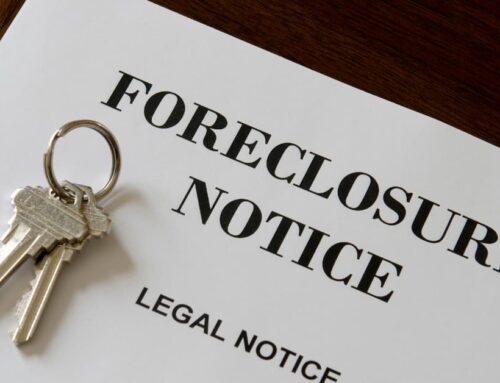Facing foreclosure can feel like standing on the edge of a financial precipice. The threat of losing your home can be overwhelming, but it’s crucial to remember that foreclosure is not an inevitable outcome.
Understanding how to fight foreclosure and win is essential for homeowners in this challenging situation. This comprehensive guide will equip you with the knowledge and strategies necessary to effectively contest foreclosure proceedings and potentially save your home.
For personalized assistance, consider consulting experienced real estate attorneys who specialize in foreclosure defense.
Understanding the Foreclosure Process
To successfully fight foreclosure and win, it’s essential to comprehend the stages of the process. This understanding will allow homeowners to identify critical junctures where intervention may be possible.
Pre-foreclosure Stage
The pre-foreclosure stage begins when a homeowner misses mortgage payments. During this period, lenders typically initiate communication with the borrower, presenting opportunities for resolution. Prompt and proactive communication with the lender is crucial at this stage. It’s important to note that most lenders are required to wait until you’re at least 120 days delinquent before starting the foreclosure process. This period provides an opportunity for homeowners to explore alternatives and potentially avoid foreclosure.
Foreclosure Proceedings
If the delinquency persists, the lender will escalate to formal foreclosure proceedings. A Notice of Default is issued, initiating legal action. The process then diverges depending on state laws. In a judicial foreclosure, a court case is filed, allowing the homeowner to present their case before a judge. In a non-judicial foreclosure, the lender proceeds with a public auction without court supervision, but homeowners can still challenge the process by filing a lawsuit.
The timeline for foreclosure proceedings can vary significantly depending on state laws and whether it’s a judicial or non-judicial process. In some states, the process can take several months, while in others, it might extend to a year or more.
Post-foreclosure Stage
If the debt remains unresolved, the property is sold at auction, typically to the highest bidder. The lender may pursue a deficiency judgment for any remaining debt if the sale price doesn’t cover the full amount owed. Finally, eviction proceedings may commence, giving the former homeowner a specific timeframe to vacate the property.
5 Key Legal Terms in Foreclosure
Understanding key legal terms is crucial when learning how to fight foreclosure and win. Here are some essential terms to know:
- Notice of Default: The official commencement of foreclosure proceedings.
- Judicial Foreclosure: A court-supervised process allowing formal contestation.
- Non-judicial Foreclosure: An expedited process occurring outside the court system.
- Right of Redemption: A time-limited opportunity to reclaim the property post-foreclosure.
- Deficiency Judgment: A court order allowing the lender to collect any remaining debt after the foreclosure sale.
Common Defenses to Fight Foreclosure and Win
Several legal avenues exist for contesting foreclosure. Identifying applicable defenses can provide leverage in negotiations or legal proceedings.
Mortgage servicer errors are a common defense. Lenders and servicers may commit errors in crediting payments, managing escrow accounts, or calculating outstanding balances. The Truth in Lending Act (TILA) of 1968 provides significant protections against such errors. If you believe your servicer has made mistakes, request a detailed account history and review it carefully.
Procedural errors can also be grounds for contesting foreclosure. Lenders must adhere to strict timelines and protocols. Common procedural errors include incorrect dates on notices, missing signatures, or improper service of notices. Such errors can potentially invalidate the foreclosure action. It’s crucial to review all documents carefully and consult with an attorney if you suspect procedural violations.
Challenging the standing to foreclose has become more common in recent years due to the complexity of mortgage securitization. The foreclosing entity must prove legal ownership of the loan. Challenges to standing can arise from missing documentation or improper assignment of the mortgage. If the foreclosing party can’t prove they own the loan, they may not have the legal right to foreclose.
Fraud or misrepresentation in the loan origination process can serve as a strong defense against foreclosure. This might include falsified income or employment information, undisclosed fees or terms, or pressure to accept unfavorable loan terms. If you believe you were a victim of fraud, gather all relevant documentation and consult with an attorney experienced in predatory lending cases.
Legal Tools for Homeowners: How to Fight Foreclosure and Win
Homeowners possess several legal tools to navigate the foreclosure process and potentially stop a foreclosure before it reaches the sale stage. A loan modification involves altering the terms of the original mortgage, potentially including reduced monthly payments, lower interest rates, partial principal forgiveness, or an extended loan term. To qualify, homeowners typically must demonstrate financial hardship. The application process can be complex, so consider seeking assistance from a HUD-approved housing counselor.
Bankruptcy filing, while often considered a last resort, can initiate an automatic stay on collection activities, including foreclosure, and provide time to reorganize finances. Chapter 7 bankruptcy may delay foreclosure but typically doesn’t allow you to keep the home unless you can become current on payments. Chapter 13 bankruptcy can allow you to keep your home by setting up a repayment plan for missed payments. Consult with a bankruptcy attorney to determine if this option is suitable for your situation.
Short sales and deed in lieu of foreclosure are alternatives that can mitigate the credit impact of foreclosure. A short sale involves selling the property for less than the outstanding mortgage balance, requiring lender approval. Understanding the differences between short sale and foreclosure can help homeowners make informed decisions about which option best suits their situation. A deed in lieu involves voluntarily transferring property title to the lender in exchange for release from the mortgage obligation. Both options require lender approval and have specific eligibility criteria. They may also have tax implications, so consult with a tax professional before proceeding.
5 Strategies to Fight Foreclosure and Win
To maximize your chances of success in fighting foreclosure, consider these key foreclosure defense strategies:
- Act promptly: Early intervention provides more options and flexibility.
- Maintain meticulous records: Document all communications, payments, and notices.
- Communicate effectively: Respond promptly to all lender requests and keep copies of correspondence.
- Seek expert assistance: Consult with a qualified foreclosure attorney to navigate complex legal matters.
- Explore government programs: Investigate federal and state programs designed to help homeowners avoid foreclosure.
Don’t ignore communications from your lender or wait until the last minute to seek help. Keep a log of phone calls, including dates, times, and the names of representatives you speak with. Many states offer free or low-cost legal aid services for homeowners facing foreclosure. Government programs may include refinancing options or temporary payment assistance, so be sure to explore all available resources.
Post-Foreclosure Sale Options
Even after a foreclosure sale, certain options may remain available. If the property sells for more than the outstanding debt, the former owner may be entitled to claim excess funds. The process for claiming these funds varies by jurisdiction. Be aware that there may be a time limit for making such claims.
Some jurisdictions allow a post-sale right of redemption. During this period, the former owner may reclaim the property by satisfying the outstanding debt and associated costs. Redemption periods and requirements vary significantly by state, so check your local laws or consult with an attorney.
Kelly Legal Group: Empowering Homeowners in the Fight Against Foreclosure
While facing foreclosure is undoubtedly challenging, it’s crucial to remember that homeowners have rights and options. By understanding how to fight foreclosure and win, recognizing potential defenses, and utilizing available legal tools, it’s possible to navigate this difficult situation effectively. Prompt action, thorough documentation, and professional legal guidance can significantly improve the chances of a favorable outcome.
Remember, each foreclosure case is unique. What proves effective for one homeowner may not be suitable for another. Therefore, it’s advisable to consult with a qualified foreclosure attorney who can provide personalized guidance based on your specific circumstances and applicable state laws.
Don’t face this challenge alone. If you’re struggling with foreclosure or believe you may be at risk, take the first step toward protecting your home today. Our experienced team of foreclosure defense attorneys is ready to help you navigate this complex process and fight for your rights.
Request an appointment to discuss your situation and explore your options. Remember, time is of the essence in foreclosure cases – act now to give yourself the best chance of success.






